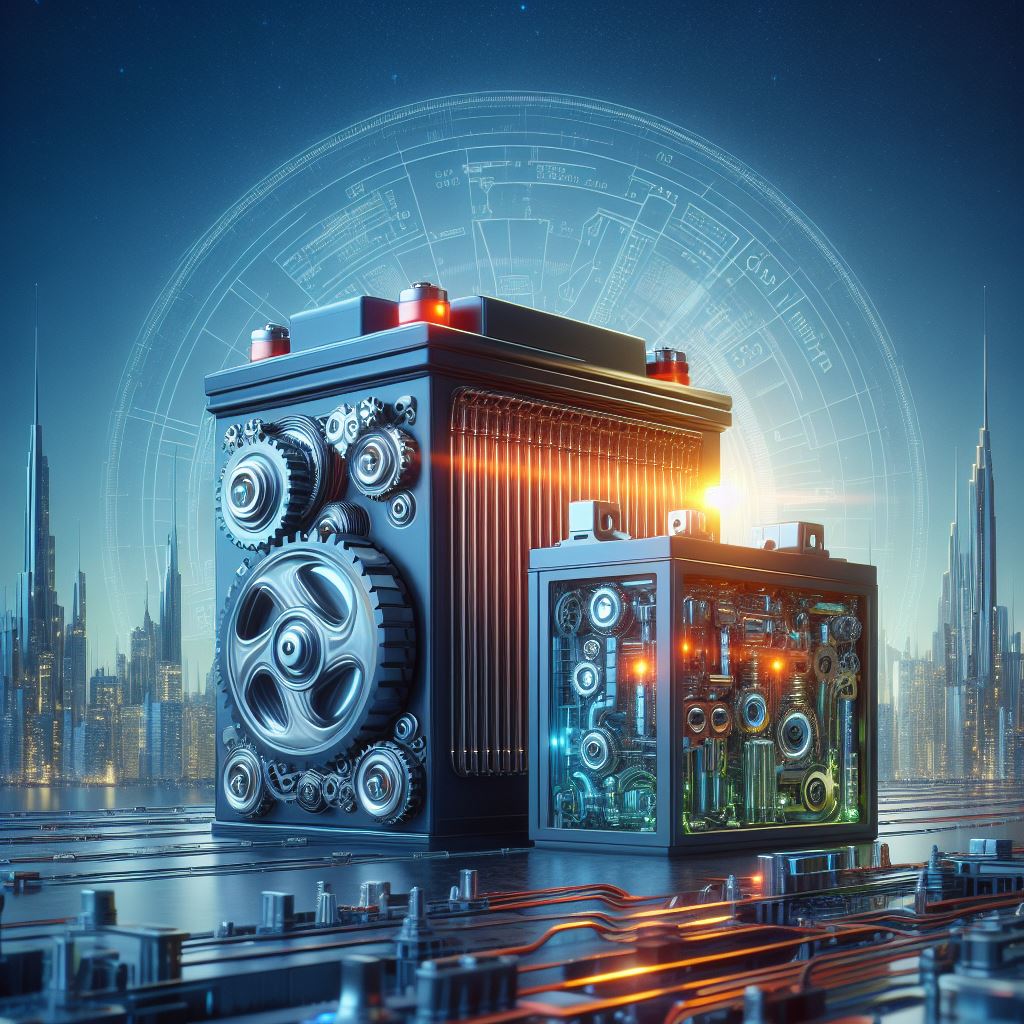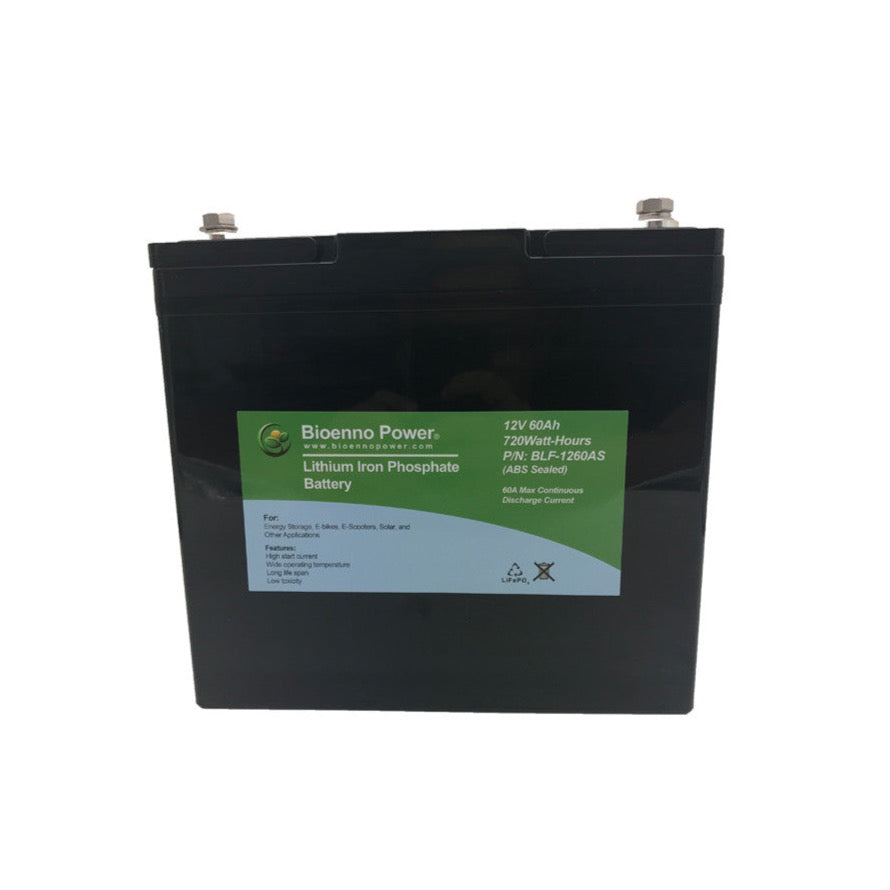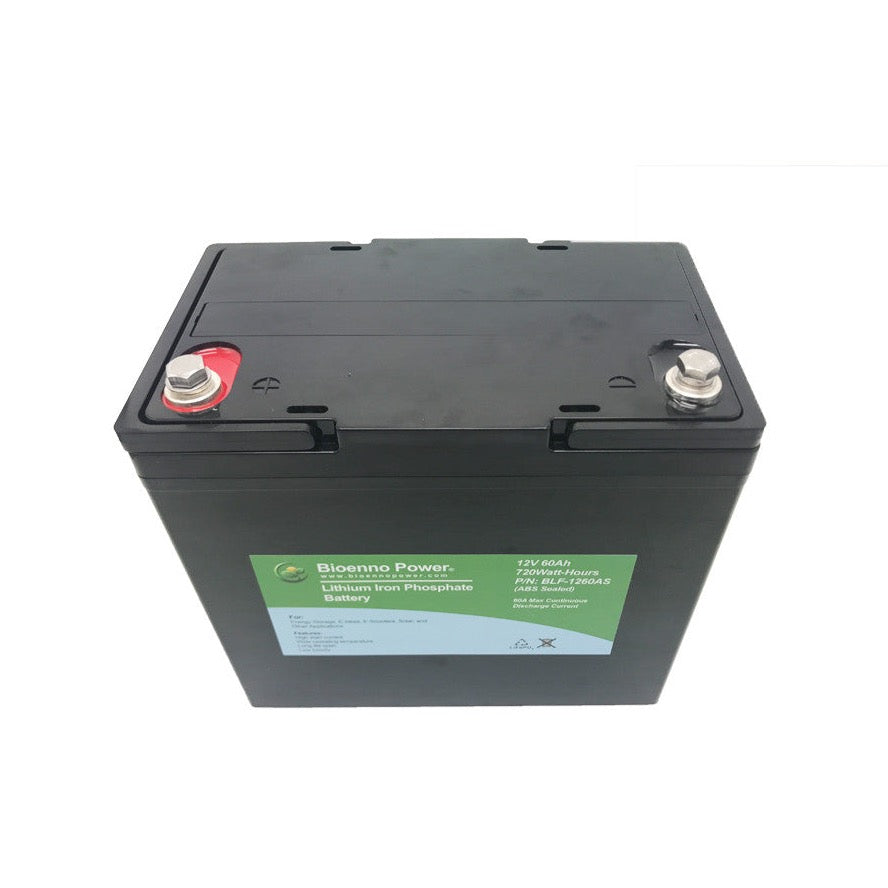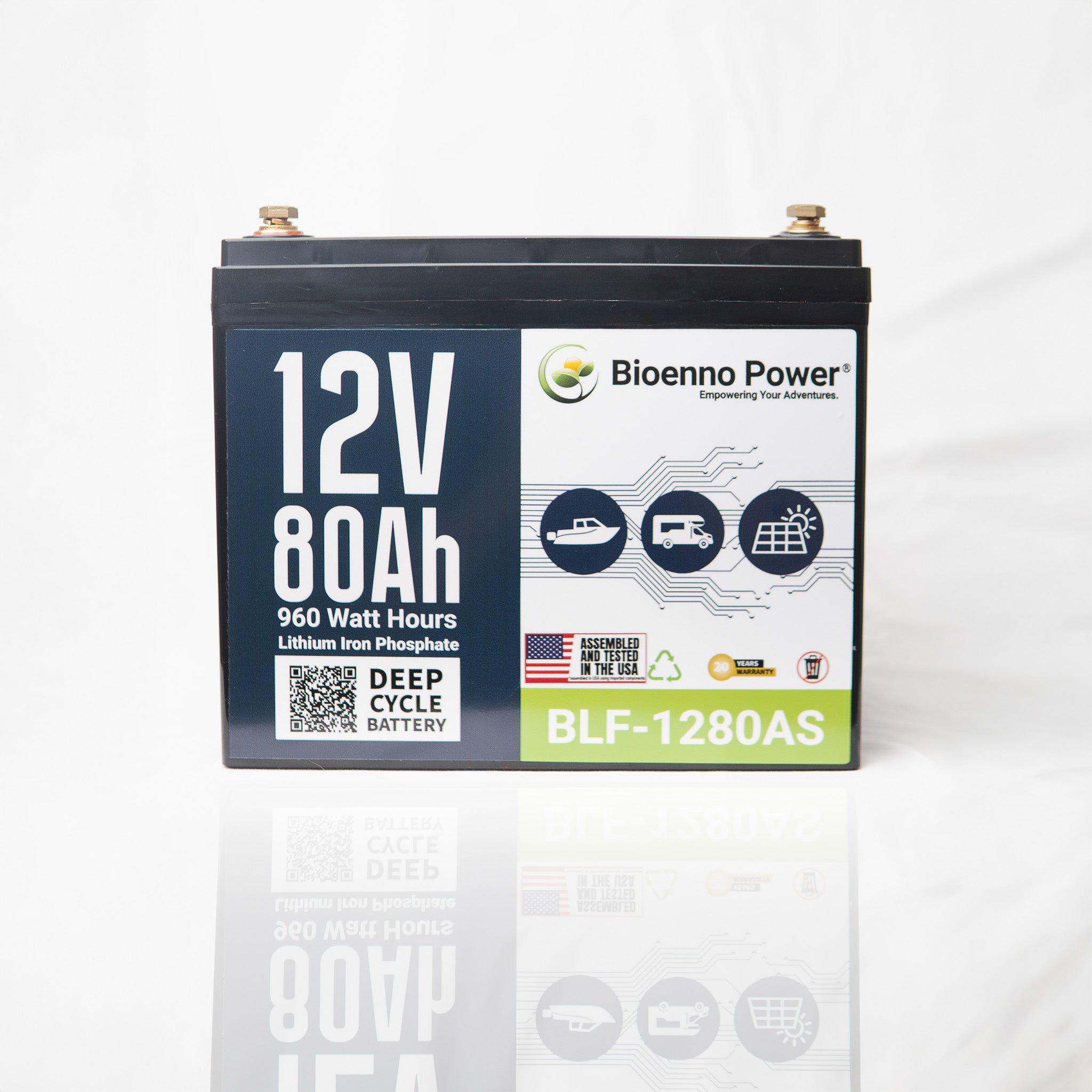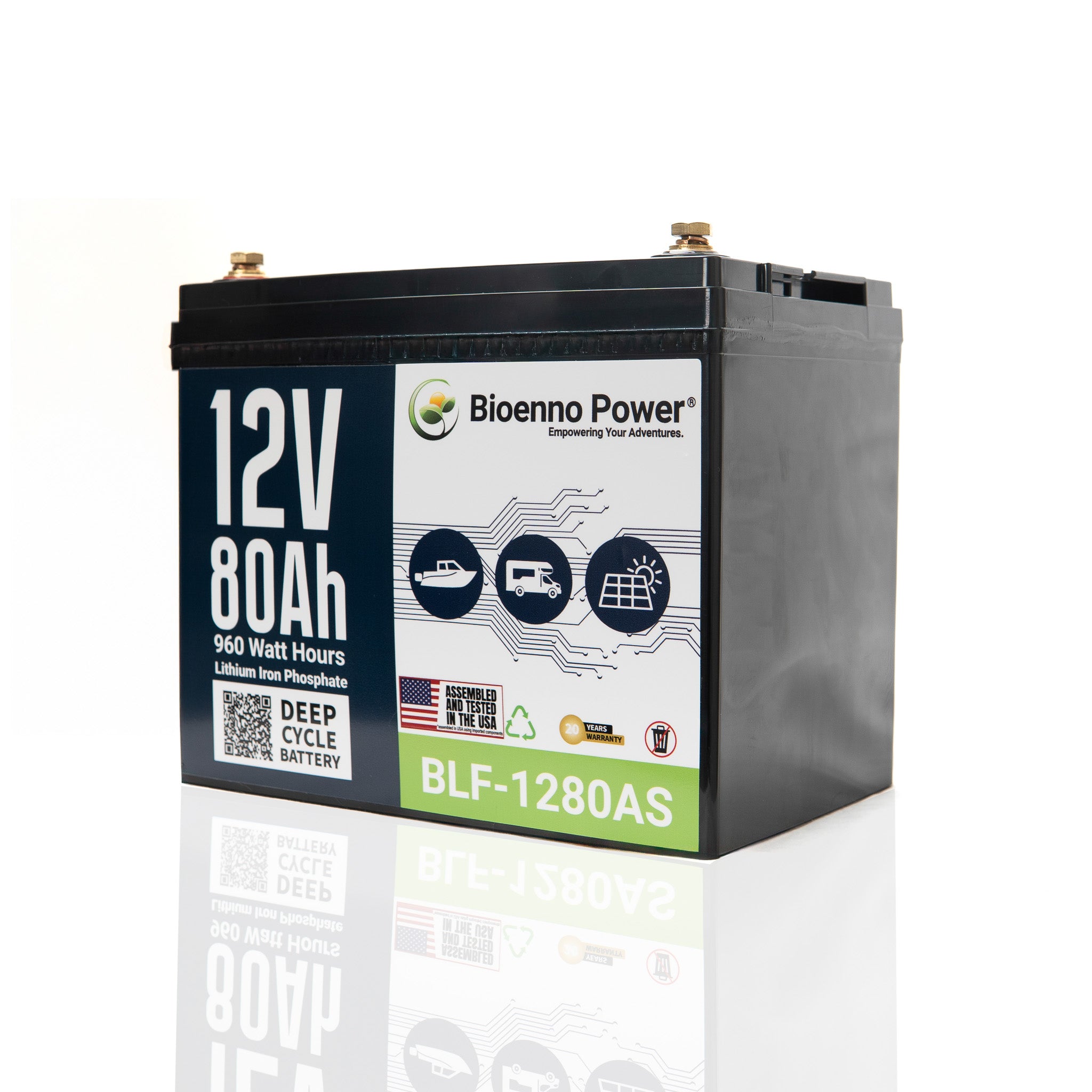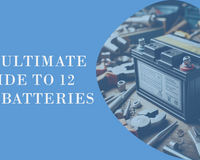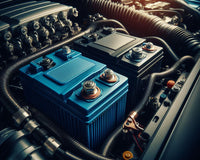The decision between lithium-ion and lead acid deep cycle batteries can be perplexing, but let's explore the intricacies of these battery types and uncover their characteristics, and advantages. Learn to identify which one will be the ideal choice for your unique requirements.
Understanding Lithium-ion Batteries
Lithium-ion batteries have taken the battery world by storm, and their application in marine settings is no exception. These batteries are known for their lightweight design, high energy density, and longer lifespan compared to traditional lead acid batteries. For boat owners looking to optimize weight distribution without compromising on power, lithium-ion batteries are a compelling option.
Advantages of Lithium-ion Batteries:
- Weight Efficiency: Lithium-ion batteries are significantly lighter than their lead acid counterparts, making them ideal for marine applications where every pound counts.
- High Energy Density: With a higher energy density, lithium-ion batteries can store more energy in a compact space, providing a longer-lasting power source for your marine endeavors.
- Long Lifespan: Lithium-ion batteries generally have a longer lifespan than lead acid batteries, ensuring durability and reliability over time.
The Legacy of Lead Acid Deep Cycle Marine Batteries
Lead acid batteries have been the go-to option for many decades. Their robust design and affordability have made them a staple in various applications. Understanding their characteristics is essential for those seeking a reliable and cost-effective power solution.
Advantages of Lead Acid Batteries:
- Affordability: Lead acid batteries are often more budget-friendly upfront, making them an attractive option for individuals looking for a cost-effective solution.
- Widespread Availability: These batteries are readily available, making replacement and maintenance more convenient for boat owners in different locations.
- Proven Technology: Lead acid batteries have a long track record of reliability, and their deep-cycle variants are well-suited for applications requiring sustained power over extended periods.
Choosing the Right Battery for Your Needs
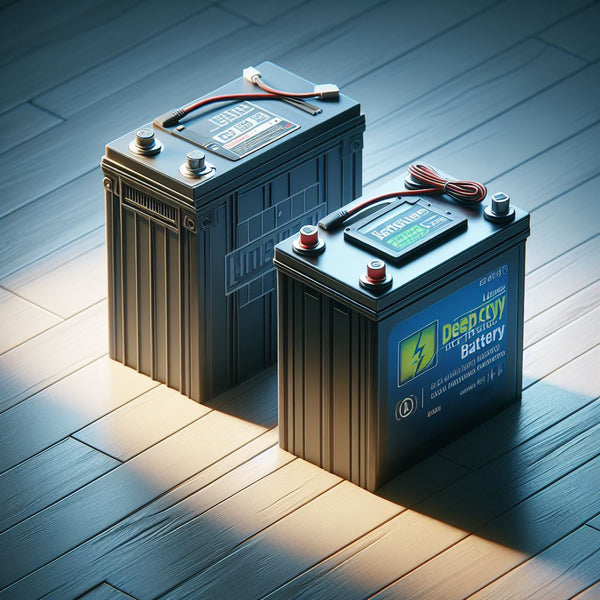
When it comes to selecting between lithium-ion and lead acid deep cycle marine batteries, there are several factors to consider.
- Application: Assess the specific needs of your marine activities. If weight is a critical factor, and you're looking for a high-performance solution, lithium-ion batteries might be the way to go.
- Budget Constraints: If upfront costs are a primary concern and you're operating within a tight budget, lead acid batteries provide a cost-effective alternative without compromising essential functionality.
- Long-Term Investment: Consider the lifespan of the battery and the long-term investment. While lithium-ion batteries may have a higher initial cost, their extended lifespan could make them a more economical choice over time.
Learn more about marine deep cycle batteries with our compete guide or 11 Tips for the Perfect Boating Adventure
Conclusion: Striking the Balance between lithium-ion and lead acid deep cycle marine batteries
When choosing between lithium-ion and lead acid deep cycle marine batteries, the choice depends on your specific needs and priorities. Striking the right balance between weight, cost, and performance is crucial for a satisfying and efficient boating or off-grid power experience. Evaluate your requirements, consider the advantages between each battery type, and embark on all your adventures with confidence, knowing that you've made an informed decision for your unique marine adventures.
11 Answers to Further Your Power
Q1: Is it possible to use lead acid deep cycle marine batteries in off-grid power systems?
A1: Yes, lead acid deep cycle marine batteries are suitable for off-grid power systems. Their proven technology and ability to provide sustained power make them a reliable choice for off-grid applications where a consistent power source is essential.
Q2: Can Lithium-ion batteries be charged using the existing charging system designed for Lead Acid batteries in marine setups?
A2: Yes, it is possible to charge lithium-ion batteries using the existing charging system designed for lead acid batteries if they have an adjustable charge voltage. It's crucial to ensure compatibility and make any necessary adjustments to the charging system to optimize the performance and lifespan of lithium-ion batteries.
Q3: Are there any specific maintenance requirements for Lead Acid Deep Cycle Marine Batteries compared to Lithium-ion batteries?
A3: Yes, lead acid batteries typically require regular maintenance, including checking water levels and ensuring proper ventilation. In contrast, lithium-ion batteries have lower maintenance needs, providing a more convenient option for individuals seeking a low-maintenance power solution for their marine activities.
Q4: Can Lithium-ion batteries provide sufficient power for marine electronics and navigation systems?
A4: Absolutely, lithium-ion batteries are well-suited for powering marine electronics and navigation systems. Their high energy density and ability to deliver consistent power make them an excellent choice for applications requiring reliable and efficient energy sources on the water.
Q6: Are there any specific safety considerations when using lead acid deep cycle marine batteries in confined spaces, such as boat compartments?
A6: Yes, safety considerations are crucial when using lead acid batteries in confined spaces. Proper ventilation is essential to dissipate gases produced during charging. Ensure that the battery compartment is well-ventilated and follow safety guidelines to prevent any potential hazards associated with gas emissions.
Q8: Can I mix different brands of Lithium-ion batteries in my marine setup, or should they be uniform?
A: It is advisable to use uniform brands and models of lithium-ion batteries in a marine setup. Mixing different brands may lead to inconsistencies in performance, charging, and discharging, potentially affecting the overall efficiency and lifespan of the batteries.
Q9: How do extreme temperatures affect the performance of Lead Acid Deep Cycle Marine Batteries compared to Lithium-ion batteries?
A: Extreme temperatures can impact the performance of lead acid batteries more than lithium-ion batteries. Lithium-ion batteries are generally more resilient to temperature variations, making them a preferred choice for marine enthusiasts who may encounter diverse weather conditions during their journeys.
Q10: Can I easily replace lead acid batteries with lithium-ion batteries in my marine setup?
A: While it is possible to replace lead acid batteries with lithium-ion batteries, it's essential to consider factors such as compatibility and charging systems. Consult with a professional to ensure a smooth transition and make any necessary adjustments to your setup.
Q11: How do I ensure the safety of lithium-ion batteries in a marine environment?
A: To ensure the safety of lithium-ion batteries in a marine environment, follow manufacturer guidelines for installation, charging, and maintenance. Invest in a battery that is sealed and rated for marine use. Regularly inspect the batteries for any signs of damage or wear.

